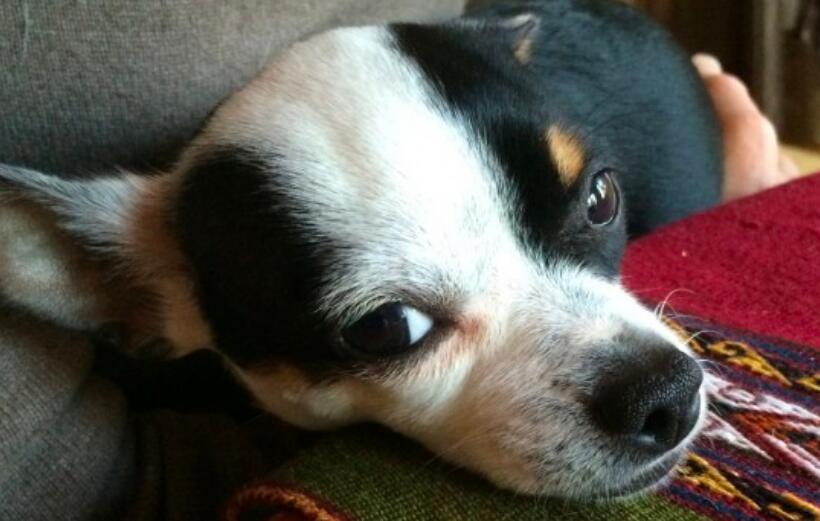Have you ever wondered why dogs sleep with their eyes open? It’s a common misconception that dogs do this to stay alert, but this isn’t actually the case. In reality, dogs sleep with their eyes open because of an evolutionary adaptation that helps them detect danger in their environment. This adaptation is shared by many animals, including cats, horses, and even some species of birds.
While the science behind this behavior is fascinating, it’s also important to understand the potential risks of dogs sleeping with their eyes open. Knowing the reasons why dogs do this and how to prevent it can help keep them safe and healthy.
Understanding Dog Sleep Patterns
It’s a common mistake to think that our canine friends share our sleep patterns. After all, they seem to sleep at night and stay awake during the day, right? Well, the reality is a bit more complex. Dogs have unique sleep cycles that differ significantly from ours, and their sleep comprises two essential stages: Rapid Eye Movement (REM) and Non-Rapid Eye Movement (Non-REM).
During the REM sleep stage, dogs dream, and their brain activity is similar to when they’re awake. This is the stage when you might see your dog twitching, moving their paws as though running, or making soft noises. Non-REM sleep, on the other hand, is a deeper, more restful sleep stage.
Dogs spend about 10% of their sleep in the REM stage, much less than humans who spend approximately 20-25% in this stage. This difference in REM sleep is one of the reasons why dogs need more total sleep time — they’re trying to get enough REM sleep!
Why do my dogs sleep with their eyes open?
There are several reasons why your dogs sleep without fully closing their eyes.
1. They are not fully asleep
If you find your dogs sleeping with eyes wide open, they will likely doze off without entering deep sleep. Any trigger from the environment can quickly wake them up.
Quietly call out their names to determine whether your furry friends are fully asleep. If they immediately get up, they are only partly asleep. In this case, having open eyes is normal.
2. They are dreaming
Just like humans, dogs dream while sleeping. They open their eyes and twitch and bark during intense dreams.
People may worry that these movements are signs of a seizure. However, you may notice much more violent actions in dogs suffering from seizures.
The most noticeable difference is that you can wake your dogs up while sleeping but can’t when they are unconscious due to a seizure.
3. They naturally sleep with open eyes
Your pup may sleep with its eyes wide open by instinct.
Since the ancestors of dogs live in the wild, they always need to watch the surrounding environment. This survival skill may be passed down to today’s dogs, and that’s why your dogs sleep without letting their guards off.
4. They aren’t sleeping with their eyes open
Sometimes, your dogs are sleeping with their eyes closed. However, their third eyelid gives the illusion of opening eyes.
Specifically, dogs are born with a third eyelid, which will wipe off any dust and protect their eyeballs. This membrane lies behind the outer eyelids.
When the eyes are slightly closed, the third eyelid will cover the eyeballs, which makes it seem like your dog’s eyes are open. However, the eyelid is just cleaning the eyes while your dogs still sleep wellDogs sleep with eyes open: When is it a problem?
Why do dogs sleep with their eyes half open?
Have you ever seen a dog sleeping and noticed that their eyes seem to be half-open? It’s actually a pretty common behavior for dogs.
The scientific reason why dogs sleep with their eyes half open is because they are engaging in a process called “Paradoxical Sleep”, or more commonly known as “REM Sleep”.
This is the deepest, most restful stage of sleep, and it is marked by rapid eye movement (hence the name). Dogs will often display a behavior known as REM atonia, which is when their eyes appear to be half-open during this stage of sleep.
Apart from the science behind it, there are also behavioral and evolutionary reasons why dogs may sleep with their eyes half open. Dogs are naturally very alert creatures, and they have evolved to remain aware of their environment while they are sleeping.
This means they can remain vigilant, even while they are asleep, and it helps them stay safe from predators. Additionally, some dogs may keep their eyes half open while they sleep due to fear or anxiety, as this allows them to be prepared for any potential danger.
Potential Health Implications of Dogs Sleeping with Their Eyes Open
While it could be a completely normal behavior for some dogs, others might be dealing with certain health issues. These can range from minor issues like dehydration and eye infections to more severe neurological disorders.
Dryness or redness in the eyes might indicate that your dog is not producing enough tears to keep their eyes moist, leading to dry eye syndrome. Discharge from the eyes could be a sign of an eye infection, while frequent blinking or squinting might suggest eye discomfort.
Changes in behavior or appetite, on the other hand, could be indicative of neurological disorders. These could cause the dog to lose control over their eyelid movement, leading to them sleeping with their eyes open.
If your dog exhibits any of these symptoms, it’s best to consult a veterinarian immediately. Early detection and treatment can prevent further complications and ensure your dog’s health and comfort.

When to Be Worried About Dogs That Sleep With Their Eyes Open
As you see, it is normal for dogs to sleep with their eyes open in some cases. However, it will be a severe problem when your dogs suffer from a condition that makes them seem as sound as sleep when they are ill.
Let’s see some of these disorders below.
1. When your dogs have an eye condition
Some dogs suffer from an eye condition that hinders them from closing their eyes properly while sleeping. They may sleep with wide-open eyes for the rest of their lives, not just sometimes.
Dog breeds with smushed-in faces and huge eyes, such as Boston Terriers, are most prone to these eye conditions.
2. When your dogs suffer from narcolepsy
Narcolepsy is a neurological disorder that causes your pup to fall asleep at unexpected moments, like running around or eating.
Narcoleptic dogs will undergo very short sleep and wake mode, meaning they will suddenly fall asleep, twitch as if they are dreaming, and wake up shortly after that. During such a sleep mode, their eyes will be partially open.
Narcolepsy is typically inherited, so you must check with the breeders carefully before bringing home any pup, especially Dobermann, Poodles, Dachshunds, and Labradors. These are the most common breeds to pass down narcolepsy from generation to generation.
3. When your dogs suffer from epilepsy
Epilepsy is another reason why your dogs are sleeping with open eyes. Doggos with epilepsy aren’t sleeping at that time. They are suffering from absent seizures, which causes them to lie on the floor with their eyes staring unfocused into space.
When your dogs have epilepsy, they won’t be able to respond. That’s why some owners think that their pets are just asleep.
Overall, here are some signs that you should take your dog to a vet when it sleeps with open eyes:
- Your dog falls asleep at inappropriate moments
- Your dog doesn’t respond to you, and you can’t wake him up, although its eyes are wide open
- Your dog keeps sleeping while their eyes look red, itchy, and swollen
How to Ensure Your Dog is Getting Quality Sleep
Ensuring quality sleep for your dog is vital for their health, happiness, and overall quality of life. Here are some useful tips to help your dog get the best sleep possible:
- Provide a comfortable sleeping environment: Make sure your dog has a quiet, comfortable place to sleep. This could be a cozy dog bed or a designated area in your home. The sleeping area should be well-ventilated and at a comfortable temperature.
- Regular exercise: Physical activity can significantly improve your dog’s sleep quality. Ensure they get plenty of playtime and walks to burn off energy. However, avoid strenuous exercise just before bedtime as it could makethem overly excited.
- Establish a routine: Dogs thrive on routine. Try to maintain consistent times for meals, walks, playtime, and bedtime.
- Monitor their diet: What your dog eats can affect their sleep. A balanced diet that’s appropriate for their size, age, and health conditions is crucial. Avoid feeding your dog just before bedtime to prevent digestive discomfort.
- Limit disturbances: If possible, try to minimize noise and light disruptions during your dog’s sleep time.
- Regular vet check-ups: Regular visits to the vet can help detect any potential health issues that might be affecting your dog’s sleep.
When Should You Consult a Veterinarian?
While dogs sleeping with their eyes open is not always a cause for concern, it’s crucial to pay attention to any changes in your dog’s sleeping behavior. If your dog usually sleeps with their eyes closed and suddenly starts sleeping with them open, it’s a good idea to consult your veterinarian.
Other signs that warrant a visit to the vet include changes in the amount of sleep, excessive twitching or movement during sleep, changes in the color or appearance of your dog’s eyes, and any signs of discomfort like excessive scratching or rubbing of the eyes.





